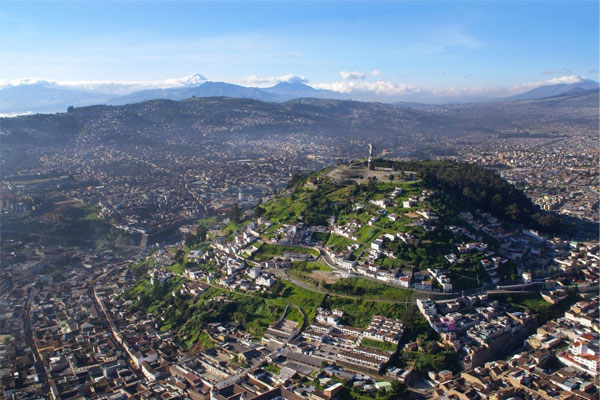The Ecuadorian government has officially extended its state of emergency until early April. This was in response to ongoing security concerns stemming from internal conflict. Visitors are advised to stay informed of regional updates and comply with local regulations throughout their stay.
Ecuador’s decision to extend the 60-day state of emergency reflects deep-seated security challenges that have arisen in recent weeks. The situation came to a head with violent incidents, including prison riots and the unsettling escape of high-profile gang leaders, underscoring the urgent need for heightened security measures.
Significantly, this state of emergency includes a curfew that affects general movement within the country. However, exceptions are in place for passengers travelling to and from airports, ensuring that international travel operations continue unhindered. The Ecuadorian Ministry of Tourism assures that key tourist destinations, such as Quito and the Galapagos Islands, remain unaffected and operational.
The Peruvian government is also on high alert, having taken preventive action by imposing measures in areas close to the Ecuadorian border. This is part of a broader strategy to mitigate any spill-over effects from Ecuador’s unrest. The Foreign Office has updated its travel advice due to the escalating threats, advising against travel to certain coastal provinces. Not all areas are deemed high-risk, with popular tourist regions continuing to welcome travellers.
For those planning to visit during this period, it is crucial to abide by instructions from security and police officials. The Foreign Office strongly advises tourists to steer clear of affected areas. Keeping informed through reliable sources and maintaining close communication with travel operators is encouraged to ensure a safe experience.
The Latin America Travel Association (LATA) is actively involved with Ecuadorian authorities to evaluate and disseminate relevant information to its members. LATA emphasises the importance of booking travel through reputable operators for added security. Martin Johnson, the chairman, stresses the continued operation of tourism services outside of isolated flashpoints.
Tourists intending to travel by land between Ecuador and Peru are advised to use only official border crossings. Recent reports of robberies and potential landmine risks make it imperative to exercise extreme caution. The Peruvian government, understanding these risks, has established a state of emergency along the shared border, working to protect locals and travellers alike.
The British Embassy may provide limited emergency assistance due to the security constraints in certain regions. Tourists should be mindful of this and prepare accordingly. Establishing a contingency plan and staying connected with the embassy digitally for guidance can alleviate some potential hurdles.
The extension of Ecuador’s state of emergency underscores the ongoing security issues the country faces. Visitors are strongly encouraged to exercise caution and follow official guidelines. Maintaining awareness and preparedness will help ensure a safer travel experience during this precarious time.

